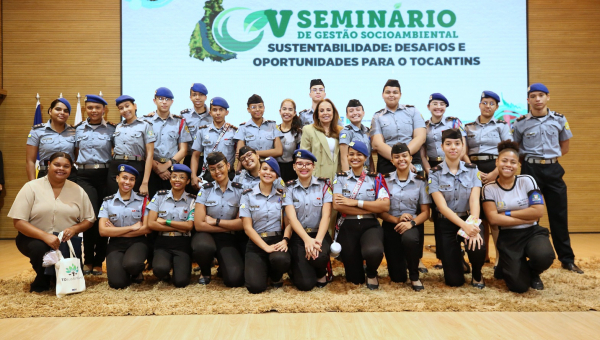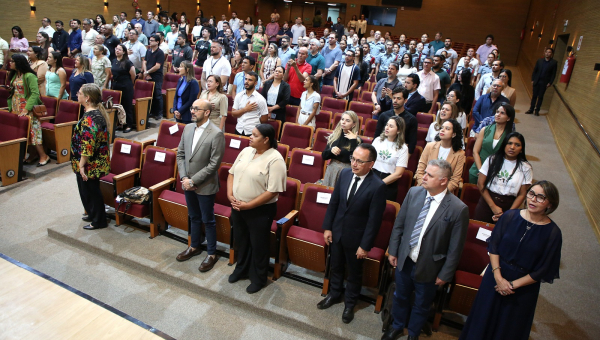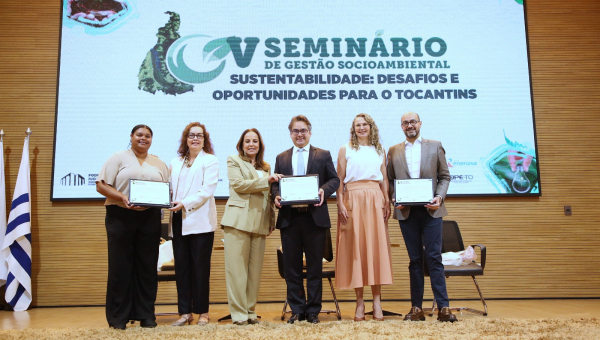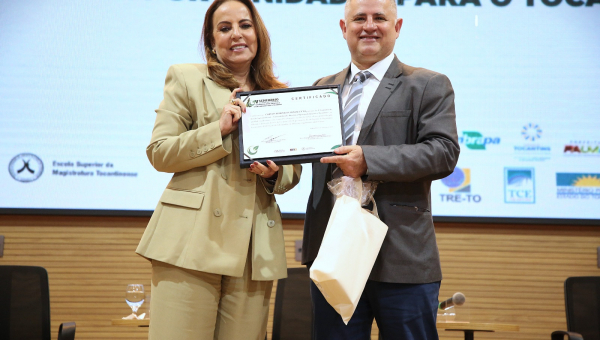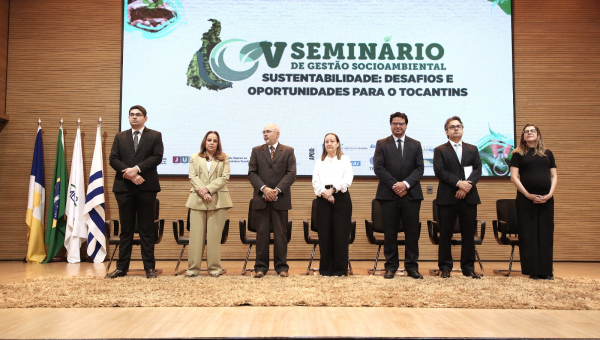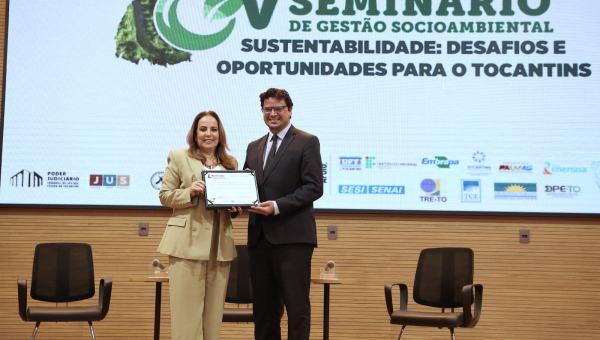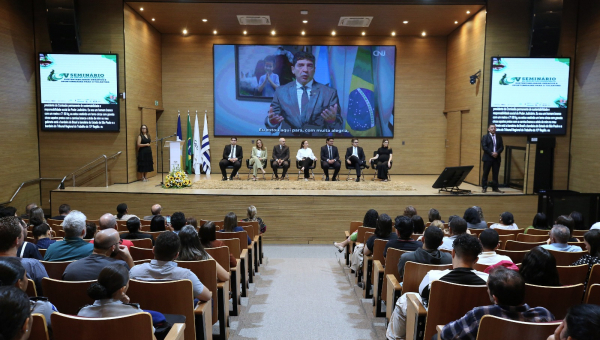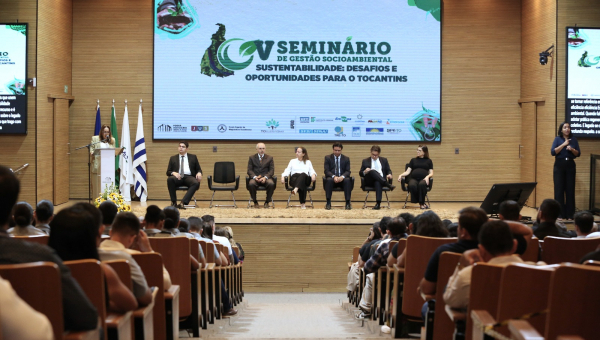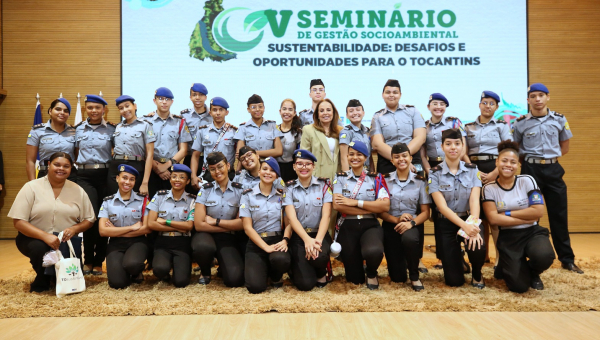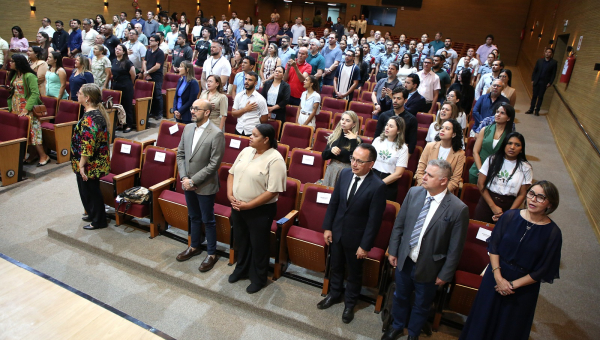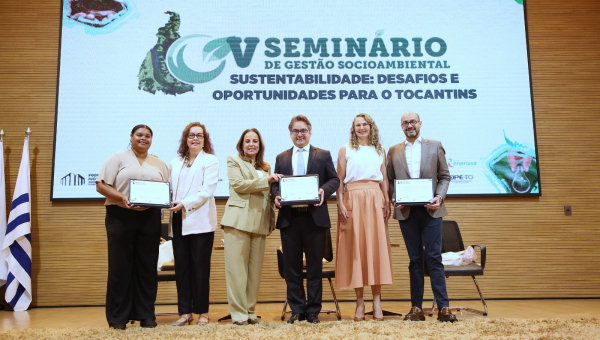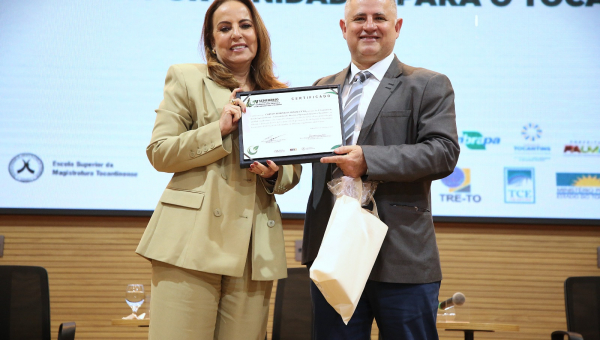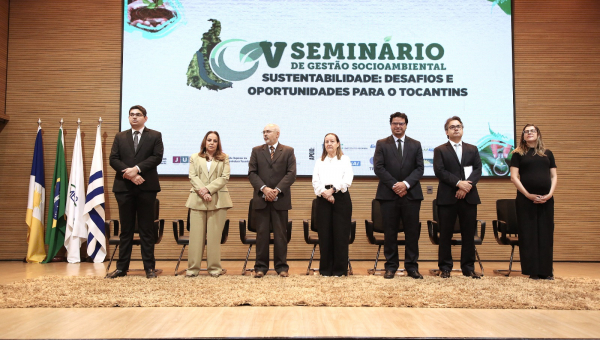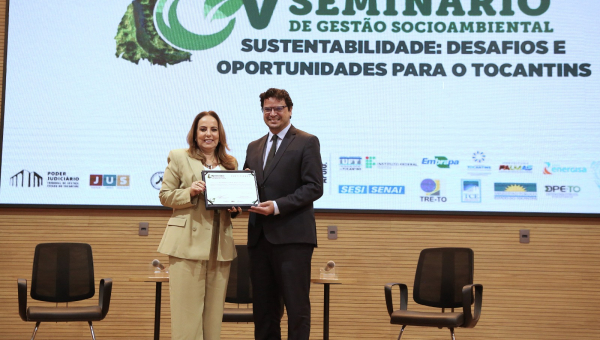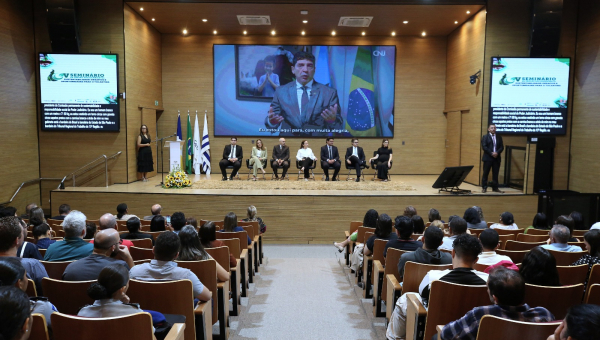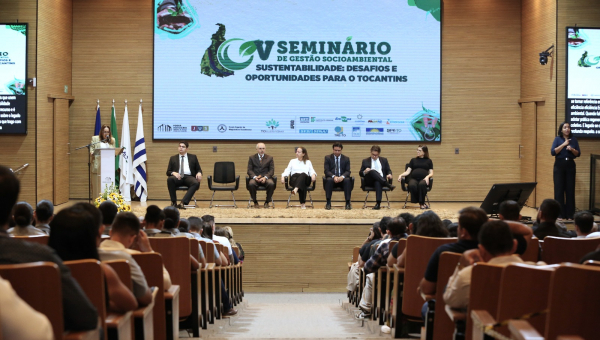
On the date on which the Amazon Day is celebrated (September 5th), the Court of Justice of the State of Tocantins (TJTO), the Coordination of Socio-Environmental Management and Social Responsibility (Cogersa) and the Sustainable TO Network, in partnership with the Superior School of the Judges of the State of Tocantins (Esmat), held the V Seminar on Socio-Environmental Management - "Sustainability: Challenges and Opportunities for the state of Tocantins" -, in the auditorium of the TJTO, with transmission to registrants rom other municipalities. The meeting promoted technical dialogue on Environmental Governance, Reverse Logistics, Circular Economy and Decarbonization.
At the opening, Ângela Maria Ribeiro Prudente, chair of the Management Committee for the Sustainable Logistics Plan (CGPLS/TJTO), highlighted that sustainability must be understood as a cross-cutting value in public policies and institutional practices.
“This seminar is more than a space for debate: it is an opportunity to align discourse and practice, planning and execution. Sustainability, in its essence, is respect for the other, time and life. In the state of Tocantins, we need to transform environmental challenges into opportunities for an inclusive, fair and regenerative development, leaving future generations a legacy of cooperation and responsibility," she said.
Then, Justice Mayza Vendramini Rosal, president of the Court of Justice of the State of Tocantins (TJTO), emphasized collective responsibility and leadership by example.

“The environmental agenda is not incidental; it crosses our decisions, contracts and administrative routines. TJTO is committed on leading by example, combining innovation, inclusion and social and environmental responsibility. May the partnerships signed here become concrete actions in the municipalities and real benefits for people", she said.
Lecture
In the opening lecture: "Advances and Challenges of the National Solid Waste Policy", the National Secretary of Urban Environment and Environmental Quality of the Ministry of Environment and Climate Change (MMA), Adalberto Felício Maluf Filho, highlighted that, after 15 years of the National Solid Waste Policy (PNRS), the country has advanced in legal frameworks, reverse logistics and selective collection, but it still faces significant bottlenecks such as the humanized eradication of more than 2,000 dumps, 80% of them are located in municipalities with less than 50,000 inhabitants, and there is a need for multi-level governance to integrate the Union, States, municipalities, Judiciary, civil society and companies.
The secretary highlighted the role of the productive sector in the circular economy, with waste reduction and socio-productive inclusion of waste pickers, and the importance of social participation in the choice of products and materials.
“We need to transform what is buried today into an input that returns to the economy, with governance that unites the Union, States, municipalities, Judiciary, society and companies and with socio-productive inclusion of waste pickers at the center of solutions.
CIRCULAR ECONOMY WITH PRODUCTIVE INCLUSION
In the panel mediated by prosecutor Saulo Vinhal da Costa, coordinator of the Center for Operational Support on Urban Planning, Housing and Environment (Caoma), of the State Prosecution of Tocantins (MPTO), jurist and consultant of international organizations with a theme of reverse logistics and circular economy Fabrício Soler presented the framework of reverse logistics in the country, regulations and instruments of shared responsibility throughout the life cycle of products, focusing on goals and traceability.
“Waste management is shared responsibility: to the Public Sector, close dumps and make selective collection; to the business sector, reverse logistics; and to citizens, the correct disposal. Only in this way we will comply with the PNRS (National Solid Waste Policy) and turn environmental liability into value", he recalled.
Subsequently, Aline Sousa, waste picker, leader of the movements of waste pickers and ambassador of the Zero Garbage Institute in Brazil defended the humanized closure of dumps, with alternatives of work and income and remunerated contracts with the Public Sector and generators.
“Closing dumps is not just a work of engineering: it is a policy of rights. There is not only waste, there are people. Therefore we advocate a humanized closure, with productive inclusion and contracts that give sustainability to the cooperatives. And the viability of cooperatives depends on remuneration for essential service and structure to operate paper, plastics and aluminum, as well as flows that require specific licenses, such as lubricating oils and electronics", she stressed.
DECARBONIZATION IN the PUBLIC sector
Closing the panels, Dr Carlos Sanquetta, professor and researcher, member of the Intergovernmental Panel on Climate Change (IPCC) and expert of the United Nations Framework Convention on Climate Change (UNFCCC), contextualized decarbonization as a simultaneous effort to avoid new emissions and remove the excess already present in the atmosphere, with coordinated actions among governments, companies, universities and citizens.
The speaker explained that decarbonization means avoiding new emissions and removing excess greenhouse gases already accumulated in the atmosphere. He recalled that the concentration of CO rose from about 280 ppm to ~430 ppm, driven by fossil fuels, waste, agriculture and deforestation. Warned about climate risks such as extreme events, loss of biodiversity, health impacts, energy and water security and advocated a coordinated action by the whole society: governments complying with the Paris Agreement and reduction targets of 50%-60% by 2030, public policies and financing; companies attending the regulation and the carbon market; and individuals adopting sustainable habits.
“Decarbonizing is preventing new emissions and removing what already exceeds in the atmosphere, a task that requires public policies, regulation for companies and change of habits, from the individual to the country", he argued.
